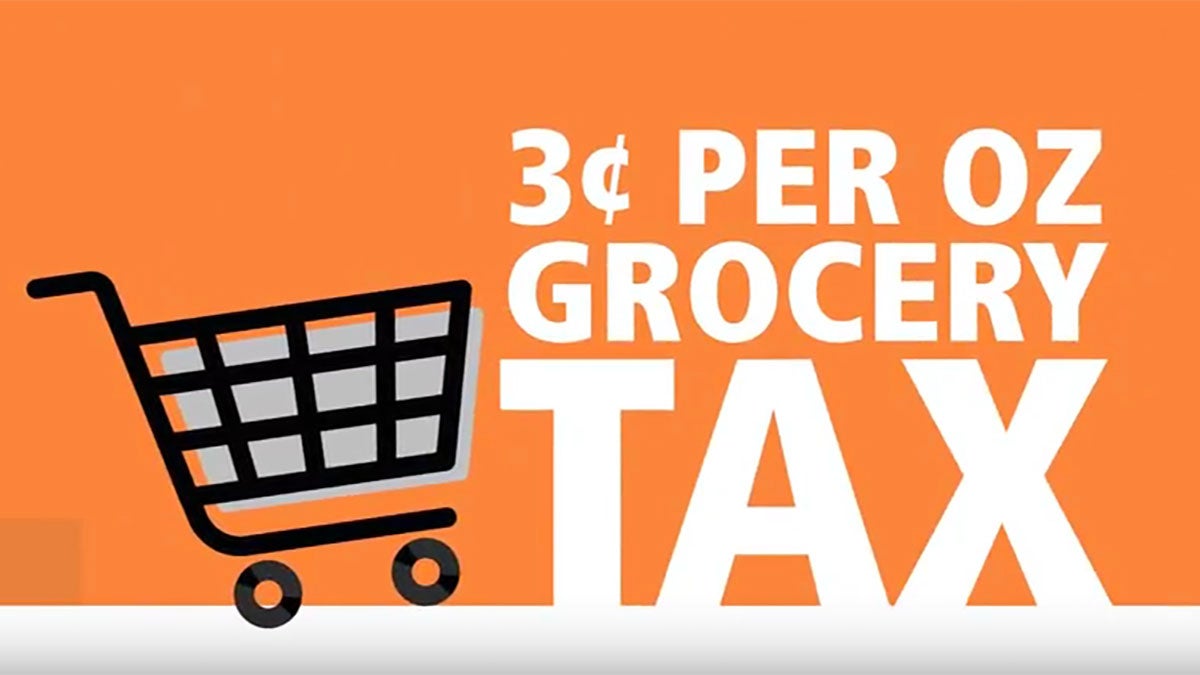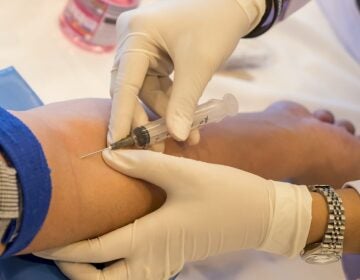$1.5 million campaign against Philly soda tax serves up TV ad
 youtube.com)" title="screen-shot-2016-04-11-at-12-01-08-pm" width="1" height="1"/>
youtube.com)" title="screen-shot-2016-04-11-at-12-01-08-pm" width="1" height="1"/>
(photo via youtube.com)
The beverage industry is spending more than $1.5 million on ads attacking Philadelphia Mayor Jim Kenney’s proposed tax on soda and other sugary drinks.
The American Beverage Association, a national trade group, has been running radio ads since March calling it a “grocery tax on the kind of drinks we buy for our family.”
On Friday, the ABA put out its first TV spot that attempts to hammer home just how much more these drinks could cost — and how many products other than soda would fall within the tax’s scope.
“This tax could mean higher prices on hundreds of grocery items with some sugar like soft drinks, sports drinks, juice drinks, energy drinks and teas,” says a female voice. “Many products could double in price.”
The ad shows an animated two-liter bottle of soda that would normally cost $1.79 rising in price to $3.83.
Under the proposed legislation, the 3 cents-per-ounce tax would be levied on the distributors who deliver these drinks. The language in the ABA’s ad assumes the full amount will be passed on to consumers. The Kenney administration’s revenue analysis also assumes the entire tax will pass through.
In Berkeley, California — the only city in the country with a sugary drinks tax — a November study found consumers pay between 30 and 70 percent of the 1 cent-per-ounce tax there, depending on the beverage. The study by the University of California, Berkeley and the University of North Carolina, Chapel Hill found the price of soda increased by 0.69 cent per ounce and the price of sweetened teas by 0.32 cent per ounce.
So far, the ABA has shelled out $583,415 to advertise on local radio stations and $982,725 to run the commercial on broadcast and cable television. A version of the TV ad will run during trailers in 10 movie theaters in Philadelphia.
The ad also reflects a shift in the opposition’s approach from the last time the city considered such a tax. Back in 2011, critics called it a job-killer. This time, the ABA is focusing on the tax’s potential effect on consumers.
“The people of Philadelphia have to understand what this tax means for them and their families and their bottom lines, frankly,” said campaign spokesman Anthony Campisi.
That message attempts to undermine Kenney’s central argument in favor of the tax: that it will help raise more than $400 million over the next five years for projects including universal pre-K, community schools and revamping parks, recreation centers and libraries, projects supporters say will help low-income families.
Kevin Feeley, a spokesman for Philadelphians for a Fair Future, the private nonprofit promoting the tax, said its own ads are “coming soon.”
WHYY is your source for fact-based, in-depth journalism and information. As a nonprofit organization, we rely on financial support from readers like you. Please give today.




